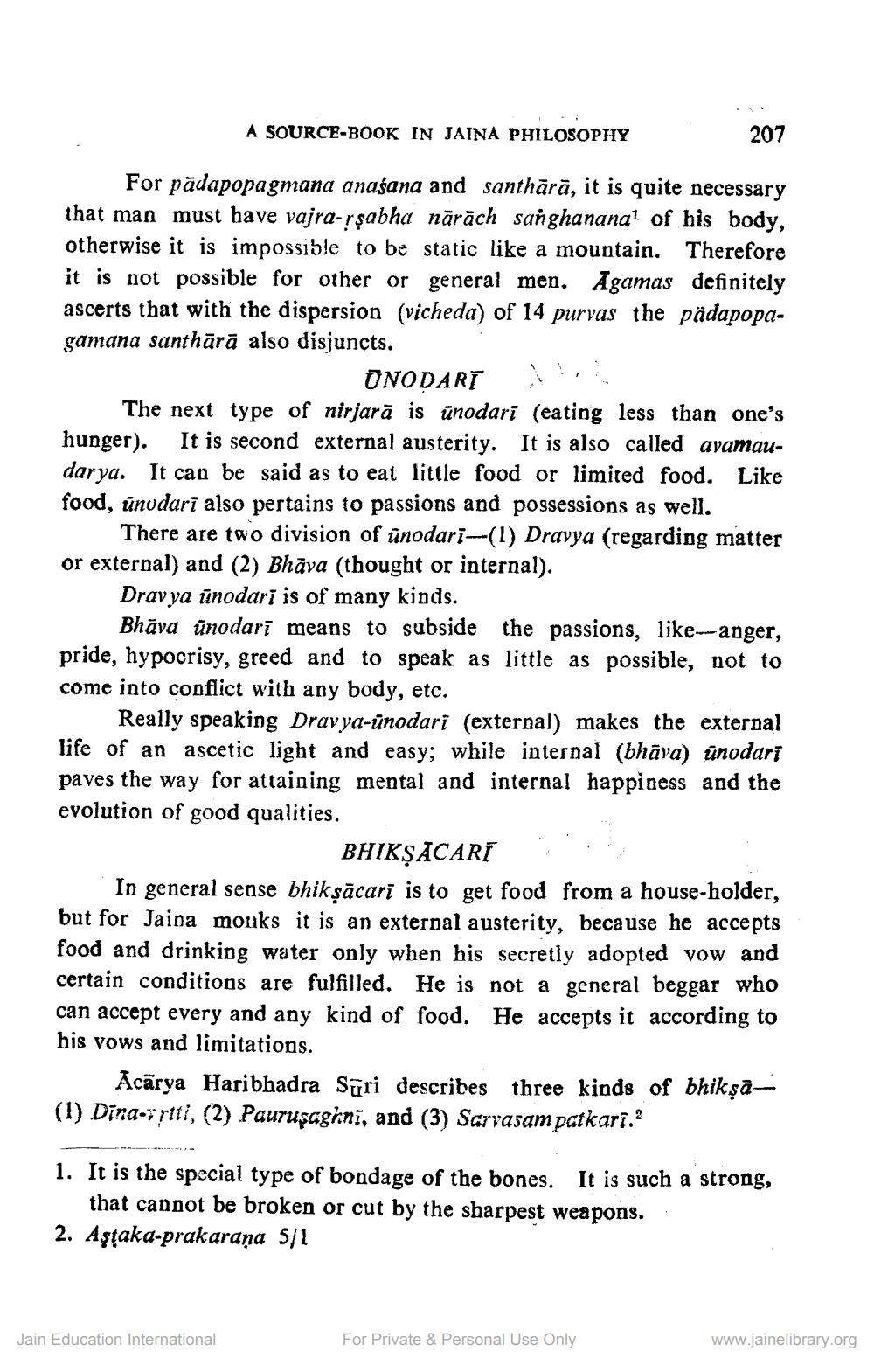________________
A SOURCE-BOOK IN JAINA PHILOSOPHY
207
For pădapopagmana anaśana and santhārā, it is quite necessary that man must have vajra-rṣabha nārāch sanghananal of his body, otherwise it is impossible to be static like a mountain. Therefore it is not possible for other or general men. Agamas definitely ascerts that with the dispersion (vicheda) of 14 purvas the pädapopagamana santhārā also disjuncts.
ŪNODARĪ la The next type of nirjarā is ūnodari (eating less than one's hunger). It is second external austerity. It is also called avamaudarya. It can be said as to eat little food or limited food. Like food, unudarī also pertains to passions and possessions as well.
There are two division of unodarī-(1) Dravya (regarding matter or external) and (2) Bhāva (thought or internal).
Dravya ünodarī is of many kinds.
Bhāva ūnodarī means to subside the passions, like-anger, pride, hypocrisy, greed and to speak as little as possible, not to come into conflict with any body, etc.
Really speaking Dravya-ūnodari (external) makes the external life of an ascetic light and easy; while internal (bhāva) ünodarī paves the way for attaining mental and internal happiness and the evolution of good qualities.
BHIKSĀCARÍ In general sense bhikṣācari is to get food from a house-holder, but for Jaina mouks it is an external austerity, because he accepts food and drinking water only when his secretly adopted vow and certain conditions are fulfilled. He is not a general beggar who can accept every and any kind of food. He accepts it according to his vows and limitations.
Acārya Haribhadra Suri describes three kinds of bhikṣā(1) Dina-rriti, (2) Pauruşagini, and (3) Sarvasampatkari.?
1. It is the special type of bondage of the bones. It is such a strong,
that cannot be broken or cut by the sharpest weapons. 2. Aştaka-prakaraṇa 5/1
Jain Education International
For Private & Personal Use Only
www.jainelibrary.org




